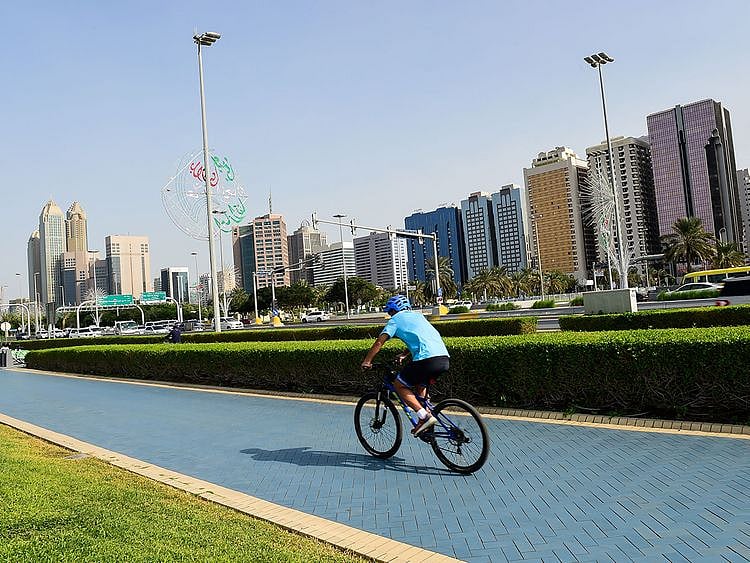Here's how landlord incentives limited 2020 rent drops in Abu Dhabi despite COVID-19
Landlords compensated tenants through monthly payment options and rent deferments

Dubai: Tenants offered three- to six-month rent deferments and options to pay monthly via credit cards seemed to have worked for Abu Dhabi’s property market - and its big landlords. There were far fewer instances of residents looking to shift after COVID-19 hit and uncertainties started to creep into the job market.
Plus, only 4,500 new homes were delivered in Abu Dhabi all through 2020 as against the 36,000 units that Dubai’s property market added during the same period.
These factors taken together ensured that rents in Abu Dhabi declined by less than 10 per cent through last year. When it comes to villas, the dip was marginal – by 3 per cent, according to the consultancy Core.
Not just that, demand actually gained for the villa-dominant communities of Yas Island, Al Raha Gardens and Saadiyat Island. COVID-19 created changes in tenant mindsets, which were also reflected in the kind of homes that were in demand.
Need open spaces
The resilience on rents “stems from the rising demand for properties with more open space, gardens and swimming pools,” the Core report notes. “With many occupiers (especially those with multinationals) continuing with hybrid workplace strategies, requirements for larger, more open residential space may continue over H1-2021.”
Fast to act
Developer-landlords such as Aldar came out with rental incentive schemes to lessen the pain of their tenants as early as last March, when the gravity of the pandemic spread was just starting to make its presence felt. According to market sources, “rent-free months were added into existing contracts” by several landlords.
With its partner bank FAB, Aldar came up with a credit card payment scheme that even allowed monthly rentals. Elsewhere, landlords followed that pattern by taking extra cheques rather than stick to the one-cheque or three-cheque routine.
Flight to bigger
Space – and lots of it – was what tenants wanted in Abu Dhabi. It was the same with offices too. Those businesses who could afford to pay the extra rent were signing up for larger office premises. “This pivot from occupiers has led the limited Grade A stock in Abu Dhabi to display relative resilience in occupancy and rents,” said the Core report. “Established tenants with strong cashflow are looking to lock-in longer lease terms to take advantage of the commercial terms being offered in the current market. We expect these trends to continue over to H1-2021 as the market continues to adjust.”
Patterns will continue
This year, new home handovers will likely be at the same levels, with most of the units being villas and townhouses. So, they will be entering at a time when demand is very much there for such property types as compared to what’s there for apartments.
Of course, a lot will ride on the state of the economic rebound and when that’s going to happen. Job creation and retention will be the other factors that everyone connected to property will be looking at.
Sales hold up
There was the mid-November community launch by Aldar on Yas Island; and the Dh940 million ‘Noya’ got an immediate – and overwhelming – response from buyers. Will developers wait a while before launching the first offplan of 2021 in Abu Dhabi? (In the wider UAE real estate sector, it was Arada in Sharjah that came up with the first offplan of the year – the Dh8 billion ‘Masaar’ development.)
Villas are gaining
Demand is rubbing off on sales values too – “For the first time in five years, average villa sales prices witnessed a 2 per cent year-on-year increase,” says Core. “Abu Dhabi saw the common theme that is being reflected in most markets post the pandemic, with larger units and villas witnessing higher demand as occupiers adjust to lifestyle requirements. This has translated into a rise of 3.5 per cent quarter-on-quarter in average villa asking prices over Q3-2020.”
Price bounce
The established residential communities of Al Raha Beach, Yas Island and Saadiyat Island “appear to be buoyant, indicating a preference for newer and quality build products,” the report adds. “While the market remains price sensitive, we continue to see a flight to quality and affordability from both end-users and investors.
“Softening market conditions have resulted in both homebuyers and tenants having more bargaining power when negotiating sales terms.”
Sign up for the Daily Briefing
Get the latest news and updates straight to your inbox
Network Links
GN StoreDownload our app
© Al Nisr Publishing LLC 2025. All rights reserved.